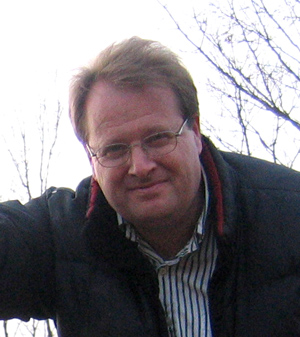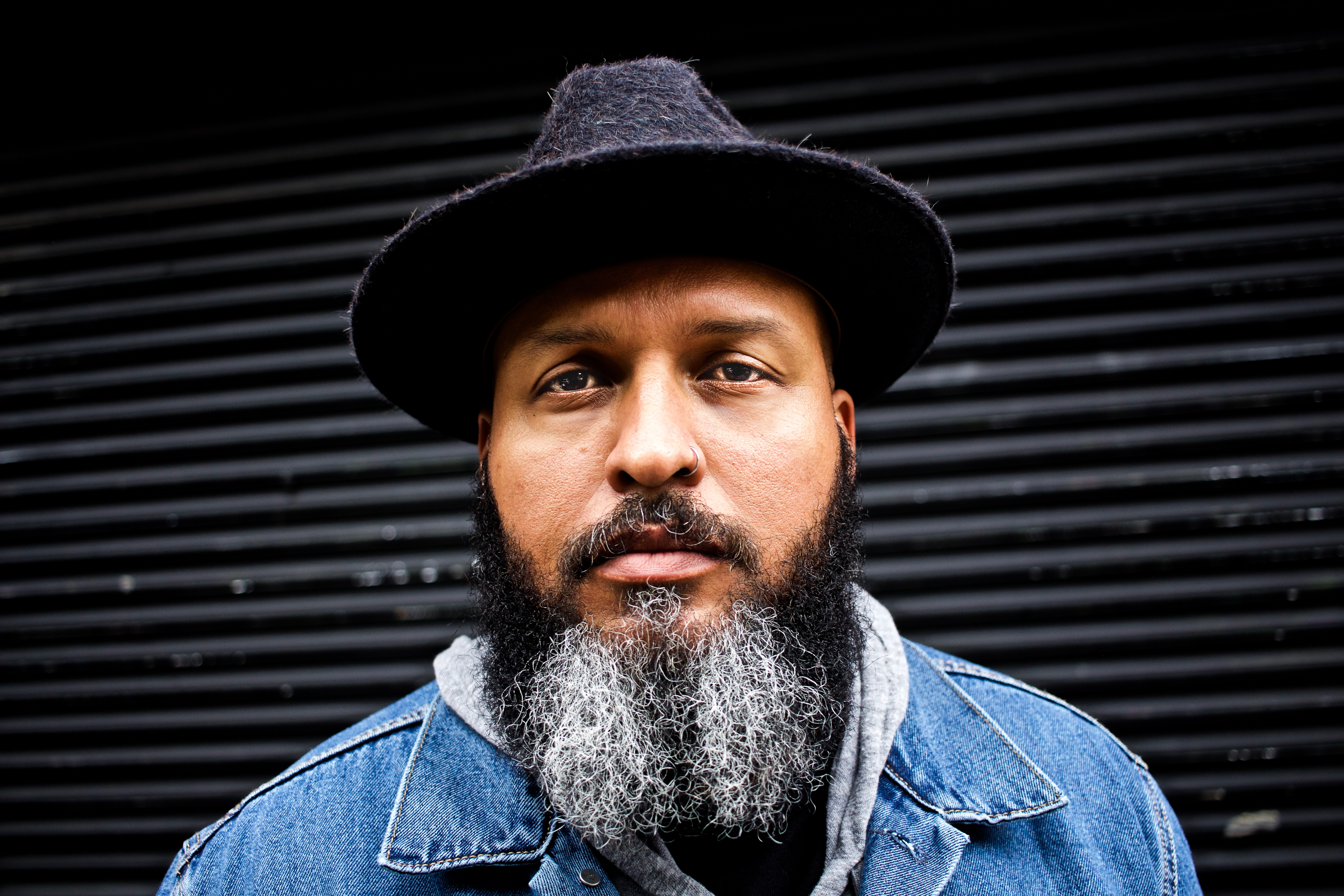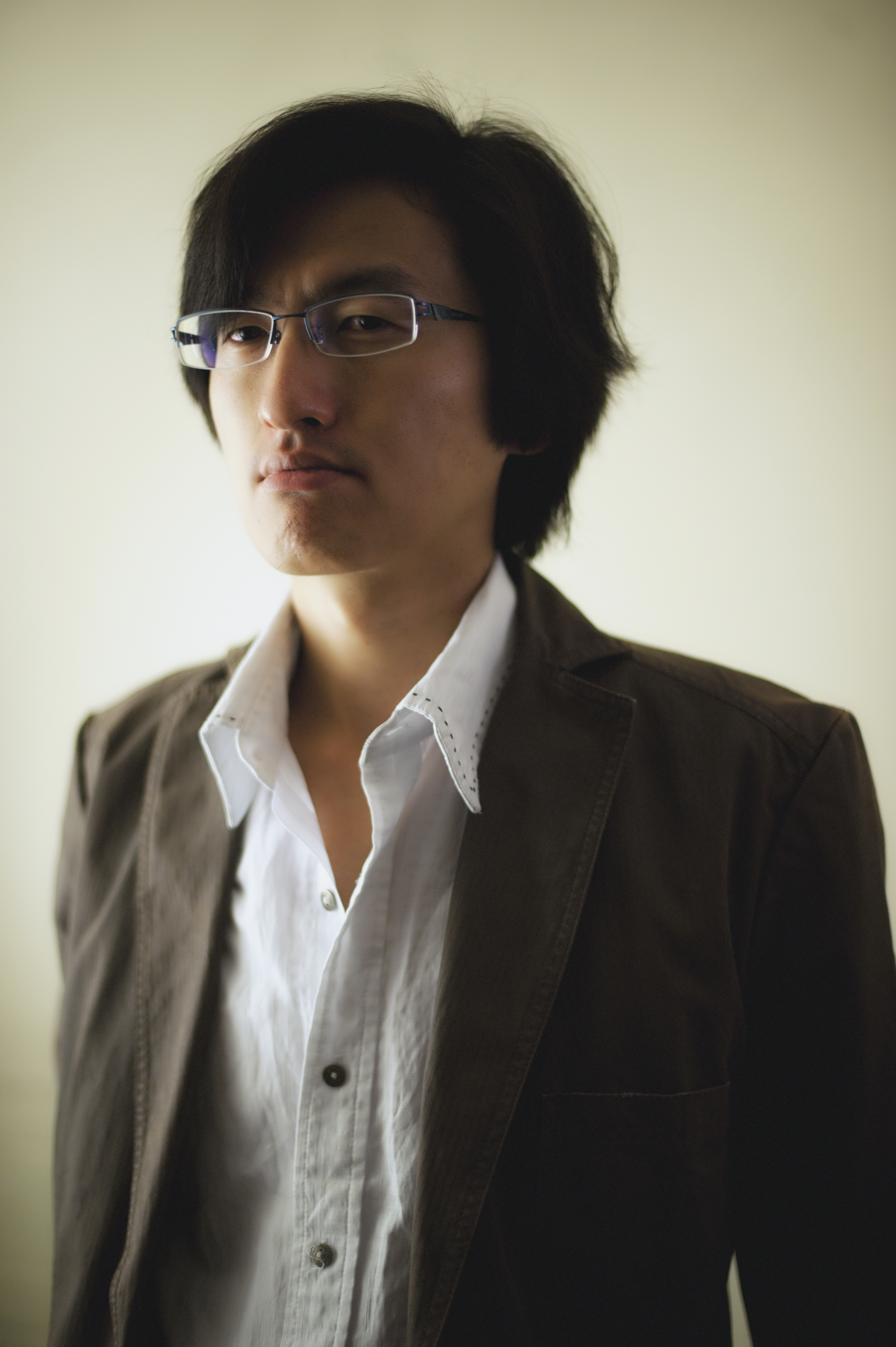-
Hirsh Sawhney
Director, Creative Writing
Hirsh Sawhney is the author of a novel, South Haven, which was a Barnes and Noble Discover Great New Writers Pick. The novel was nominated for the DSC Prize and shortlisted for the Tata Lit Live First Book Award and the Shakti Bhatt First Book Prize. Hirsh's writing has appeared in The TLS, The New York Times Book Review, The Guardian, The Financial Times, Harvard Review, The Independent, and numerous other periodicals. He has worked as an editor at The Brooklyn Rail and Wasafiri Magazine and previously taught at Brooklyn College and Rutgers University. He is the editor of Delhi Noir, a critically-acclaimed anthology of original fiction.
-

Douglas Arthur Martin
Associate Director, Creative Writing
Douglas A. Martin is a queer writer and author of books of both prose and poetry whose first novel, Outline of My Lover, was named an International Book of the Year in the Times Literary Supplement and adapted in part by the Forsythe Company for their multimedia ballet and live film, “Kammer/Kammer.” Other publications include: Once You Go Back, finalist for a Lambda Literary Award in Gay Memoir/Biography; Branwell, finalist for the Publishing Triangle’s Ferro-Grumley Award; a triptych of novellas, Your Body Figured; a book-length lyric study, Acker; a collection of poetry, In the Time of Assignments (Soft Skull 2008); and collection of short stories, They Change the Subject (University of Wisconsin 2005). Their most recent title is Wolf, an anti true crime novel (Nightboat 2020). They have been translated in Italian, Japanese, Spanish and Portuguese. They are a co-author of The Haiku Year—a project requiring composing a haiku a day—and co-editor of Kathy Acker: The Last Interview and Other Conversations (Melville House 2018). Born in Virginia and raised in Georgia before leaving for New York City at 25, they now divide time between Brooklyn and upstate NY near the Delaware River and Connecticut, for Wesleyan, serving as assistant director of the creative writing program and teaching classes in all genres.
-

Charles Barber
Charles Barber is an Associate Professor of the Practice and Writer in Residence in the College of Letters. He has taught at Wesleyan for a decade, and is also a Lecturer in Psychiatry at Yale. He is the author of Songs from the Black Chair: A Memoir of Mental Interiors, Comfortably Numb: How Psychiatry is Medicating a Nation, Citizen Outlaw: One Man's Journey from Gangleader to Peacekeeper, and the forthcoming In the Blood, about the invention of a revolutionary blood-clotting product. He has also written academic articles and book chapters in psychiatry and criminology. Before he became a writer, he worked for many years in homeless shelters, halfway houses and supportive housing programs for individuals diagnosed with mental illness, in New York City and Connecticut. He grew up in Middletown on the edge of the Wesleyan campus, and does his best writing in cafes around town.
-
Lisa Cohen
Lisa Cohen is the author of the critically acclaimed All We Know: Three Lives (Farrar, Straus and Giroux), a finalist for the National Book Critics Circle, PEN/Bograd Weld, Lambda Literary, and other awards. All We Know was a New York Times Notable Book and Editor’s Choice of 2012; Publishers Weekly named it one Top 10 Best Books of that year and described it as an “exquisite triptych biography.” Professor Cohen’s essays and poems have appeared in numerous journals and anthologies, including The London Review of Books, The Paris Review, Fashion Theory, Bookforum, Queer 13, BOMB, The New York Times’ T Magazine, Adult Contemporary, The Yale Journal of Criticism, Vogue, The Vassar Review, and Ploughshares. Her current projects include a book on grief, decay, and Enlightenment legacies in the long history of HIV/AIDS; a series of essays on lived experiences of clothing; and a collection of lyric prose.
-
Rachel Heng
Rachel Heng is the author of the novels The Great Reclamation (forthcoming from Riverhead) and Suicide Club (Henry Holt, 2018), which has been translated into ten languages worldwide and won the Gladstone Library Writer-In-Residence Award. Rachel's short fiction has appeared in The New Yorker, McSweeney's Quarterly, Glimmer Train, Kenyon Review, and has been recognized by anthologies including Best American Short Stories, The Pushcart Prize, Best Small Fictions and Best New Singaporean Short Stories. She was recently longlisted for the 2021 Sunday Times Short Story Award, “the world’s richest and most prestigious prize for a single short story.” Her non-fiction has been listed among Best American Essays’ Notable Essays and published in Al Jazeera, Guernica, BOMB Magazine, The Rumpus and elsewhere. She has received grants and fellowships from the Vermont Studio Center, Sewanee Writers' Conference, Fine Arts Work Center and the National Arts Council of Singapore. Rachel received her MFA in Fiction and Playwriting from the Michener Center for Writers, UT Austin, and her BA in Comparative Literature & Society from Columbia University.
-

Maaza Mengiste
Maaza Mengiste’s writing and teaching focus on the individual lives at stake during conflict, migration, and political upheaval, as well as the intersections of photography and war. She is the author of Beneath the Lion’s Gaze (W.W. Norton, 2010) and The Shadow King (W.W. Norton, 2019), and the editor of Addis Ababa Noir (Akashic Books, 2019). Her essays have appeared in the New York Times, New York Review of Books, London Review of Books, Guardian, Esquire, Granta, and Rolling Stone, amongst other places. Maaza Mengiste’s current book project, A Brief Portrait of Small Deaths, is a novel set during the interwar years and considers the lives of Black Germans as Nazism rises.
-

John Murillo
John Murillo is the author of the poetry collections Up Jump the Boogie (Cypher 2010, Four Way Books 2020), finalist for both the Kate Tufts Discovery Award and the Pen Open Book Award, and Kontemporary Amerikan Poetry (Four Way 2020), winner of the Kingsley Tufts Poetry Award and the Poetry Society of Virginia’s North American Book Award, and finalist for the PEN/Voelcker Award for Poetry and the NAACP Image Award. His other honors include the Four Quartets Prize from the T.S. Eliot Foundation and the Poetry Society of America, two Larry Neal Writers Awards, a pair of Pushcart Prizes, the J Howard and Barbara MJ Wood Prize from the Poetry Foundation, an NYSCA/NYFA Artist Fellowship, and fellowships from the National Endowment for the Arts, the Bread Loaf Writers Conference, Fine Arts Work Center in Provincetown, Cave Canem Foundation, and the Wisconsin Institute for Creative Writing. Recent poems have appeared in such publications as American Poetry Review, Poetry, and Best American Poetry 2017, 2019, and 2020. He is an assistant professor of English and director of the creative writing program at Wesleyan University and also teaches in the low residency MFA program at Sierra Nevada University.
-

María Ospina
María Ospina’s first book of fiction Azares del cuerpo, has been published in Colombia (Laguna), Chile (Edícola), Spain (Las Afueras). It has been translated into Italian (Edícola) and is now available in English as Variations on the Body (Coffe House Press). Her stories have appeared in several Colombian anthologies, as well as in Revista PenÚltima and The Literary Review. She’s working on a novel that will be published in the Spring of 2022. At Wesleyan she teaches courses con contemporary Latin American culture and creative writing in Spanish.
-
Danielle Vogel
Danielle Vogel is a poet, lyric essayist, and interdisciplinary artist working at the intersections of ecology, somatics, and ceremony. She is the author of The Way a Line Hallucinates Its Own Linearity (Red Hen 2020), Edges & Fray (Wesleyan 2020), and Between Grammars (Noemi 2015). Her creative research practice, which includes the study of animal architectures, land restoration, the science of biophotons and epigenetics, and also encompasses aspects of her art-making, such as working with wild clay, plants, and pigments, reflects her ongoing commitment toward bioregional literacy (learning from the languages of elements and ecosystems), reintegrating a reader with their environments, and allowing this ongoing and developing practice to directly inform and reshape her poetics across projects and books. She writes toward a more organic grammar, always asking how can a book, as an extended field of a body, serve as a site of radical transformation, how can the fragment, the letter, the lyric essay serve as non-linear conduits for transmuting the body and its consciousness?
-

Ao Wang
Ao Wang’s research focuses primarily on Chinese poetry and its intersections with other literary genres and intellectual fields. He writes literary criticism in both his native Chinese and English. He has received awards for his own poetry, including the 2016 Shi Jianshe New Poet Prize and the 2014 Renmin Wenxue New Writer Prize, and he translates poetry from and into Chinese, including works of Wallace Stevens, W. H. Auden, Hart Crane, and Seamus Heaney.